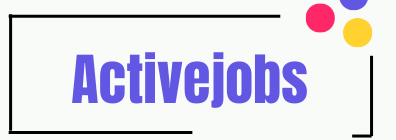The tech industry is booming, but how you choose to participate is a big decision. Two main paths stand out: the gig economy, where you work on freelance projects, and the traditional tech career, with a set salary and benefits at a company. Both offer exciting opportunities, but they come with distinct advantages and disadvantages. Let’s delve into the pros and cons of each to help you decide which route best suits your goals and lifestyle.
The Enticing Gig Economy
Freedom and Flexibility: The gig economy beckons with the allure of being your own boss. You choose your projects, set your schedule, and work from anywhere with an internet connection. This flexibility is ideal for those who crave independence, want to travel, or have other commitments that require a non-traditional work schedule.
Variety and Skill-Building: The gig economy offers a constant stream of diverse projects, allowing you to work on a wide range of technologies and hone your skills in various areas. This keeps your work exciting and helps you build a well-rounded skillset that’s attractive to potential clients.
Potential for High Income: Highly skilled freelancers can command top dollar for their services. There’s no limit to how much you can earn, especially if you build a strong reputation and client base.
The Flip Side of the Coin:
Income Inconsistency: Freelance income can be feast or famine. There’s no guaranteed paycheck, and you’ll need to hustle to find new projects regularly. This financial uncertainty can be stressful.
Benefits Burden: As a freelancer, you’re responsible for your own health insurance, social security, and other benefits. This can be a significant expense, especially when starting.
Client Management and Marketing: Your success hinges on your ability to find clients and market yourself effectively. This requires strong business development and communication skills.
The Security of a Traditional Tech Career
Stability and Security: Traditional tech jobs offer a steady paycheck, health insurance, paid time off, and other benefits. This financial security and structure can be appealing, especially for those who value predictability.
Teamwork and Collaboration: Working at a company allows you to learn from colleagues, collaborate on projects, and build your network within the industry. This can be a great way to develop your professional skills and gain valuable mentorship.
Growth and Career Development: Many companies offer training programs and opportunities for career advancement. This allows you to specialize in a particular area and progress towards your long-term career goals.
The Not-So-Glittering Side:
Less Flexibility: Traditional jobs typically require set hours and adherence to a company schedule. This can be a drawback for those who value work-life balance or have other commitments outside of work.
Limited Control: You may not have as much control over the projects you work on or the direction your career takes in a traditional role. This can be frustrating for those who crave autonomy and want to shape their own path.
Finding the Right Fit
Ultimately, the best path for you depends on your individual priorities and risk tolerance. Consider the following:
- Do you value flexibility and freedom, or stability and security?
- Are you comfortable managing your own income and benefits?
- Do you thrive in a collaborative environment, or do you prefer to work independently?
Making the Leap: Tips for Gig-Goers
If the gig economy appeals to you, here are some steps to get started:
- Develop a strong online presence: Build a professional website or portfolio showcasing your skills and experience. Utilize online platforms like LinkedIn and Upwork to connect with potential clients.
- Sharpen your business skills: Learn how to market yourself, negotiate rates, and manage your finances effectively.
- Network actively: Attend industry events, connect with other freelancers, and build relationships that can lead to new opportunities.
The Final Word
The tech industry offers exciting possibilities, whether you choose the traditional path or embrace the gig economy. Carefully weigh the pros and cons of each option and consider your own preferences to make an informed decision. Remember, there’s no one-size-fits-all answer – the best career is the one that allows you to thrive and achieve your professional goals.

